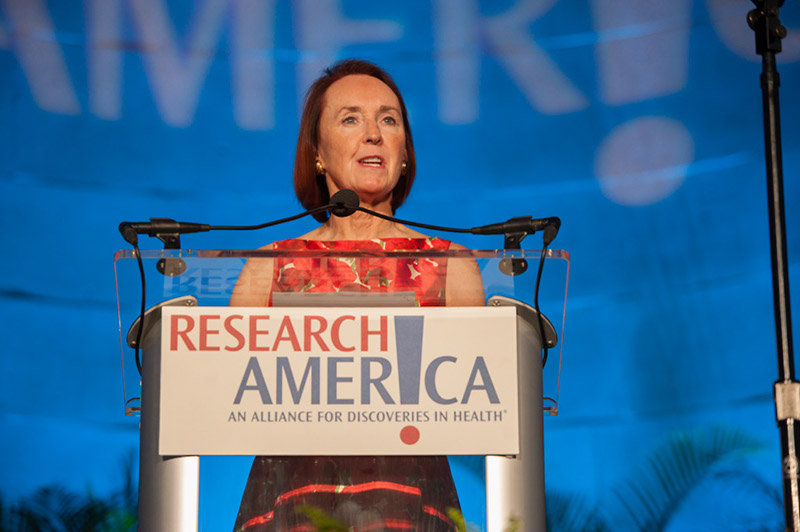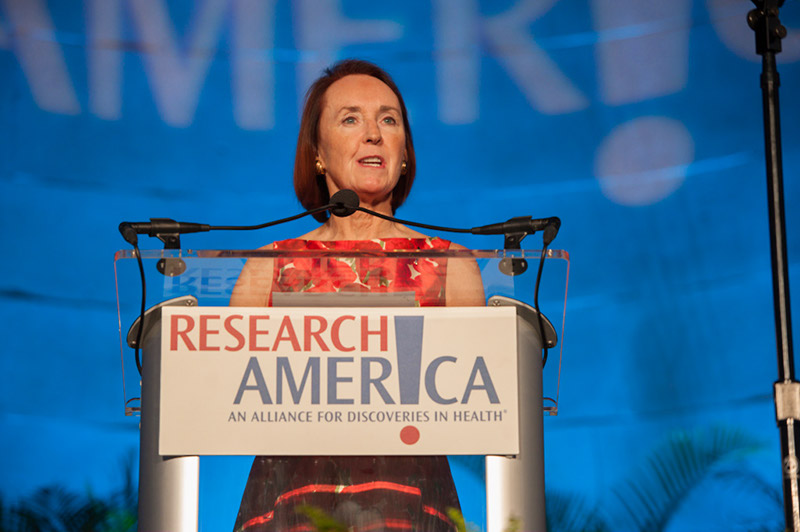Leadership matters

 Dear Research Advocate,
Dear Research Advocate,
Last Friday, I joined ASM CEO Stefano Bertuzzi and Georgetown McDonough School of Business professor and social marketing guru Bill Novelli in a lively session on advocacy for science. Bill emphasized the pivotal role strong leaders play in securing paradigm shifts such as a cultural shift in the value Americans assign to science and innovation.
I thought of this when the welcome news broke that President Trump reappointed Dr. Francis Collins as NIH Director. Dr. Collins is second to none in his ability to connect the dots for the public and policymakers on the wide-ranging impact of research and innovation.
More good news: the House E&C Committee passed the FDA user fee reauthorization package, and during a House Commerce Justice Science Appropriations Subcommittee hearing, Chairman John Culberson (R-TX) said: “This whole subcommittee is arm-in-arm when it comes to our support for fundamental research; the spectacular work done by the National Science Foundation. We are, all of us, committed to preserving American leadership in fundamental research and space exploration.” Another inspirational leader, NSF Director Dr. France Cordova has worked tirelessly to make the case for the agency and the science it enables.
Speaking of inspirational, take a moment to read the compelling op-ed FASEB President Hudson Freeze authored on the power of fundamental science to drive unexpected, transformative progress. Email Anna Briseno at [email protected] if we can can assist you in penning an op-ed or LTE.
Members of Congress will be at work for only 26 days before the August recess. “Daunting” is a tame descriptor for their to-do list: House Republicans want to pass an FY18 omnibus spending package in record time; Senate Republicans want to pass an ACA (Obamacare) replacement bill; both chambers appear committed to passing an FDA user fee reauthorization package; the debt ceiling deadline looms…and that’s an abridged list.
In terms of FY18 spending, last week I mentioned that the current budget caps are too low to permit Congress to advance research and other strategic priorities. It’s not just one issue among many; it’s easily the biggest challenge research advocates face on the appropriations front. Take action now: sign your organization on to this letter making the case for a bipartisan deal to raise the budget caps. Research!America authored it, and we hope organizations within and outside our membership sign on. Please share with your networks.
The Senate HELP Committee has scheduled a drug pricing hearing for Tuesday, June 13 that has implications for research and innovation. Based on the available information, the objective is to explore the various factors that influence: 1) the differential between the “list” prices manufacturers set and the actual revenue they receive from each sale (and what happens to that difference — does it buy value?); and 2) how to rationalize the out-of-pocket expenses patients incur. While there won’t be as many Americans tuning in as listened to the Comey hearing today, this discussion and those that follow will impact us all.
The Administration’s “indirect,” “overhead,” or “facilities and administrative” cost-cutting proposal is receiving significant attention. On a Research!America members’ call earlier today, Jennifer Poulakidas from APLU and Toby Smith from AAU did a terrific job clarifying the what, why and how of federal indirect cost reimbursement, and what is at stake. We’ll be sending out a recap of the call, and as always welcome your feedback.
One more item: Next Thursday, June 15, Trust for America’s Health is hosting a Virtual Advocacy Day in support of the Prevention and Public Health Fund (PPHF), which will be eliminated if the Affordable Care Act (“Obamacare”) is repealed. To learn more, contact Jack Rayburn at [email protected] at TFAH.
Sincerely,
Mary Woolley




